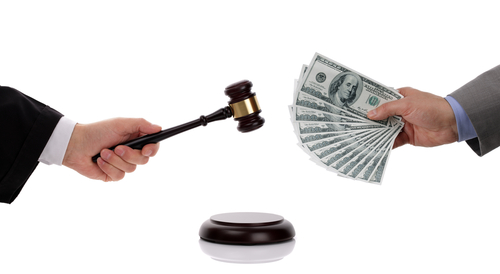Whenever someone files for bankruptcy, it can be a way for them to wipe the slate clean and start a new without worrying about the bills and debts that they have racked up. However, if you have to pay child support, filing for bankruptcy won’t eliminate what you owe, and it won’t alter what you must pay in the future either. Just because it doesn’t wipe out your child support payments doesn’t mean that there isn’t any connection between bankruptcy and child support. Read on for information on what you should know about filing for bankruptcy and child support obligations.
Automatic Stay
Typically, when you file for bankruptcy, most of your bills are subject to an “automatic stay.” The automatic stay acts as a stop sign, which means that any creditors must automatically stop all collection actions for the entire term of the bankruptcy, including wage garnishments, foreclosures, bank levies, and collection calls. But this doesn’t apply to child support or spousal support because there is an interest in protecting the rights of children to receive parental support.
The Role of the Bankruptcy Regarding Child Support Obligations
For all bankruptcy filings, the court appoints a bankruptcy trustee to handle the case. The trustee must report child support obligations and will have the debtor to complete a form for the meeting with the creditors. Since child support is considered a “priority debt,” when money is available for paying creditors, the trustee must pay child support arrearages first before paying other debt.
Chapter 7 Bankruptcy
Here is some information that is specific to filing Chapter 7 bankruptcy and how it impacts child support obligations:
- In a Chapter 7 bankruptcy, your assets are sold off to pay your debts.
- While most of the remaining debts will be discharged, this isn’t true for child support in arrears or child support that is past due.
- You are still responsible for child support and property division balances after the case closes.
- If the trustee sells property that you can’t protect with an exemption, the funds will be applied to the support obligation.
- You will remain responsible for any child support obligation and any amount that are due after the filing even when you get a discharge.
Chapter 13 Bankruptcy
Here is some information that is specific to filing Chapter 13 bankruptcy and how it impacts child support obligations:
- If you’re filing a Chapter 13, your child support in arrears is subject to a repayment plan where you will pay it off over 3-5 years.
- You must meet all court-ordered child support obligations.
- It’s possible that you may be able to wipe out a property division balance.
- Since a repayment plan can’t exceed 5 years, if you have a lot of child support in arrears, you will have to deal with a high monthly plan payment.
Speak with an Experienced Bankruptcy Attorney
Bankruptcy laws can be complex and difficult to understand. That’s why if you owe child support payments and are thinking about filing for bankruptcy, you should speak with an experienced MOWK Law New York bankruptcy attorney. They can provide insight into your case and can help you make a decision about what’s best for your situation. Contact us today.

